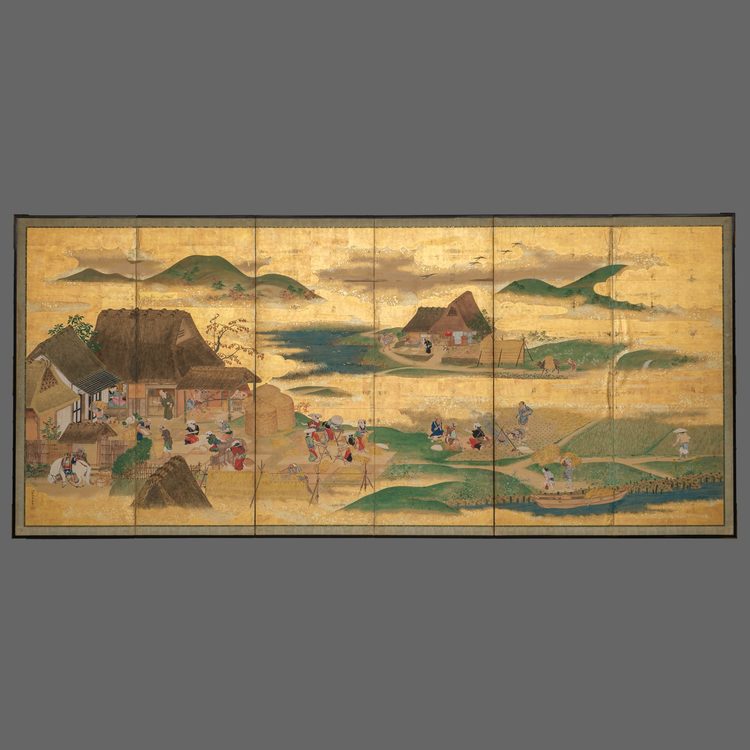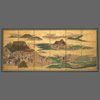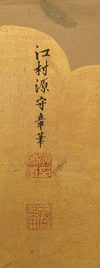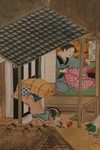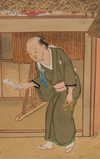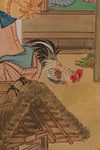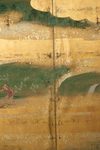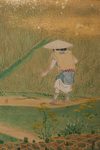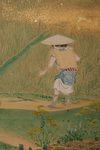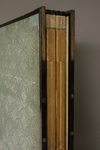Lot 48 6 PANEL SCREEN WITH MOUNTAIN VILLAGE SCENE
A fascinating, tall six-panel byôbu 屏風 (folding screen) showcasing a detailed genre painting illustrating various scenes of daily labour in a rural mountain village during the Edo period.
The village is nestled beside a lake and river, encircled by lush rice paddies. On the far right, a farmer tends to the fields, while nearby, a woman loads a fishing boat with bundled rice stalks freshly harvested. Her young son walks towards a group of farmers taking a well-earned break, seated on a now-empty plot. One man leans over the fire, blowing to keep the fire going.
Above them stands a farmhouse, where a woman is busy sifting rice, next to all the stalks that are left to dry over large A-frame racks. Her home lies close to the lake, which teems with ducks gliding across the water.
In the lower left, a larger-scale operation is underway: people bundling stalks for drying, sifting the rice, and filling sacks before loading them into storage. At the entrance gate, a man has arrived on a white horse, likely coming to collect a portion of the harvest from this bustling village.
The vivid landscape is enveloped in dense clouds of gold leaf with a misty, speckled greenish-gold border.
Signed and sealed in the lower left corner: “Painted by Emura Minamoto Moriaki” 江村源守章筆
Sealed: “Seal by Minamoto Moriaki” 源守章印, along with an additional two-character red name seal.
The painting is mounted by two silk borders—a thin dark green inner brocade and a broader light green outer band—and set within a black lacquered wooden frame with parcel-gilt metal hardware for protection.
Period: Japan – Second half 19th century (Early Meiji period)
Dimensions:
Total width: 380.8 cm (2 x 64.6 cm, 4 x 62.9 cm); Height: 172 cm.
The screen is in a very good condition with minor traces of age and restorations, mostly along the hinges. The reverse has been partially re-papered. Please refer to the photos for a detailed condition reference. This folding screen is ideal for mounting flat on a wall and displaying as a single, captivating work of art.
